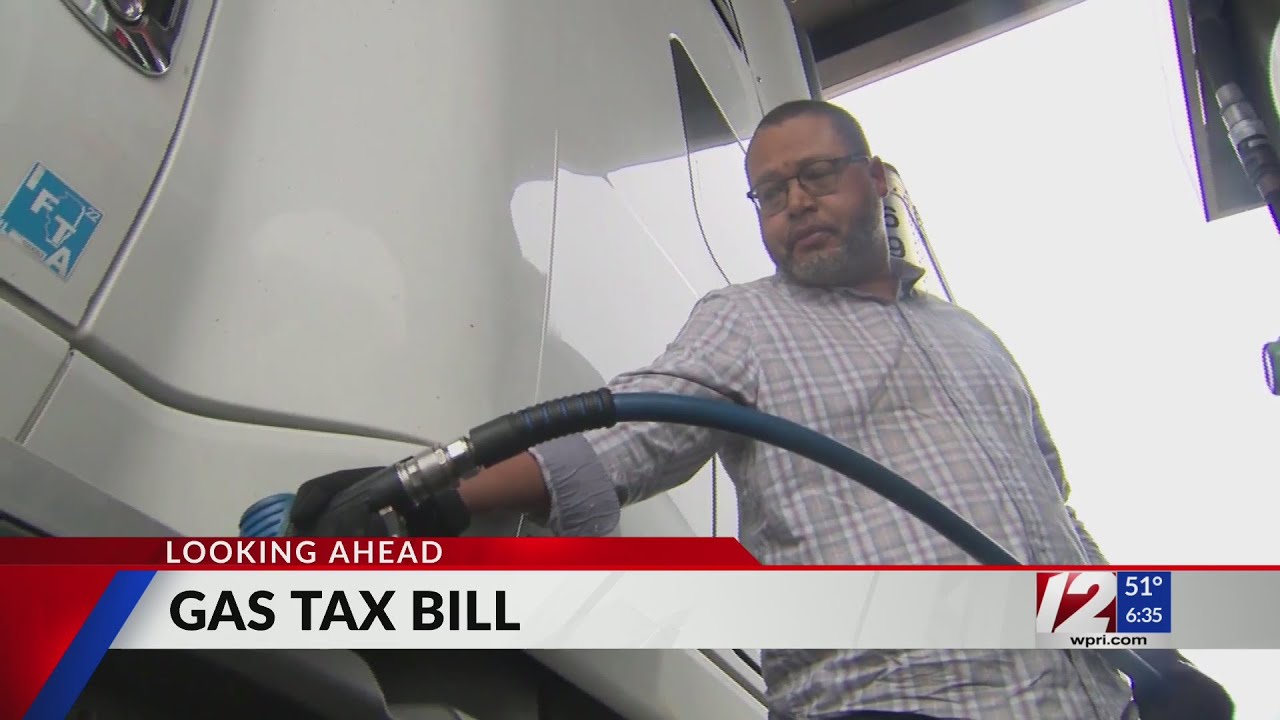Introduction: Understanding the Gas Tax in Rhode Island
The gas tax is an important source of revenue for the state of Rhode Island, contributing to the funding of various transportation infrastructure projects and maintenance. This article aims to provide a comprehensive overview of the gas tax in Rhode Island, including its historical evolution, current rates, calculation methodology, factors influencing rates, economic implications, comparison to other states, revenue allocation, recent policy changes, public opinion, and potential modifications.
Historical Overview: How the Gas Tax in Rhode Island Evolved
The gas tax in Rhode Island has undergone several changes since its inception. Originally introduced in 1923 at a rate of 2 cents per gallon, it remained relatively stable until the mid-20th century. In the 1970s, as the need for infrastructure improvements grew, the gas tax was increased to 10 cents per gallon. Subsequent increases occurred in the 1990s and early 2000s, bringing the tax to its current levels.
Current Gas Tax Rates: A Comprehensive Overview
As of 2021, the gas tax in Rhode Island stands at 34 cents per gallon. This rate comprises both the state tax of 33 cents per gallon and an additional 1 cent per gallon local tax. These rates are subject to change to accommodate economic factors and infrastructure needs.
Calculation Methodology: How the Gas Tax is Determined
The gas tax in Rhode Island follows a specific calculation methodology. The state’s Division of Taxation utilizes a formula that considers factors such as the average wholesale price of gasoline and the Consumer Price Index. This methodology ensures that the gas tax remains adjusted to the current economic conditions.
Factors Influencing Gas Tax Rates in Rhode Island
Several factors influence the gas tax rates in Rhode Island. One of the primary factors is the need for transportation infrastructure maintenance and improvements, which require a stable revenue stream. Additionally, fluctuations in the price of gasoline and changes in the state’s economic conditions can impact the gas tax rates.
Economic Implications: How the Gas Tax Affects the Economy
The gas tax in Rhode Island has significant economic implications. While it provides funding for transportation projects, it also affects consumers’ purchasing power. Higher gas tax rates can lead to increased fuel costs for individuals and businesses, potentially impacting their spending on other goods and services. Conversely, a well-maintained transportation infrastructure can attract businesses and contribute to economic growth.
Comparing Rhode Island’s Gas Tax to Other States
When comparing Rhode Island’s gas tax to other states, it is important to note that rates can vary significantly. As of 2021, Rhode Island’s gas tax is considered higher than the national average, which is around 27 cents per gallon.
Gas Tax Revenue Allocation: Where Does the Money Go?
The revenue generated from the gas tax in Rhode Island is primarily allocated to transportation-related projects. These projects include road and bridge maintenance, highway construction, public transportation systems, and other initiatives aimed at improving the state’s transportation infrastructure.
Recent Changes in Rhode Island’s Gas Tax Policy
Recent years have witnessed some changes in Rhode Island’s gas tax policy. In 2017, the state implemented a controversial program called the Rhode Island Department of Transportation (RIDOT) RhodeWorks, which introduced a truck-only tolling system as an alternative revenue source for infrastructure improvements. This initiative aimed to reduce the reliance on the gas tax and distribute the burden more evenly among road users.
Public Opinion: Views on the Gas Tax in Rhode Island
Public opinion regarding the gas tax in Rhode Island varies. Some individuals and organizations argue that the tax is necessary for maintaining and improving transportation infrastructure. Others believe that the tax is too high and places an undue burden on consumers and businesses. Public opinion plays a crucial role in shaping the potential modifications and changes to the gas tax policy.
Potential Modifications: Proposed Changes to the Gas Tax
Various proposals have been put forward regarding potential modifications to Rhode Island’s gas tax. Some advocate for adjusting the tax rates based on inflation or tying them to specific economic indicators. Others suggest alternative funding mechanisms, such as mileage-based fees or tolling systems. Policy discussions and public input play a vital role in determining the potential modifications to the gas tax.
Conclusion: Assessing the Impact of the Gas Tax in Rhode Island
The gas tax in Rhode Island serves as a critical revenue source for transportation infrastructure projects, ensuring the maintenance and improvement of the state’s roads and bridges. While it can impact consumers and businesses through increased fuel costs, a well-maintained transportation system positively influences economic growth. Public opinion and ongoing policy discussions will continue to shape the future of the gas tax in Rhode Island, ensuring its effectiveness and fairness.





